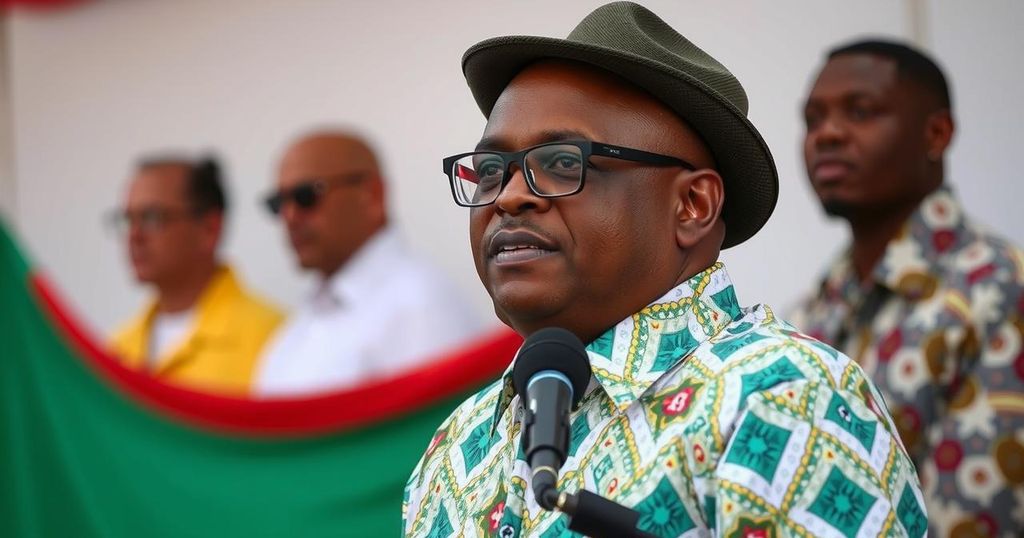Ghana’s presidential and legislative elections have begun amidst a severe economic crisis, with 18.7 million registered voters. The main candidates, Vice President Mahamudu Bawumia and former President John Dramani Mahama, face criticism for their economic agendas. Voter dissatisfaction is underscored by high inflation and an effective economic downturn. The outcome of this election could significantly impact Ghana’s path forward.
On Saturday, Ghana conducted its presidential and legislative elections against the backdrop of a severe economic crisis, positioning the event as a crucial test of democracy in a region facing increasing unrest due to coups and extremist violence. Approximately 18.7 million Ghanaians were registered to vote in an election that is perceived as a two-way race between Vice President Mahamudu Bawumia of the ruling New Patriotic Party (NPP) and former President John Dramani Mahama of the National Democratic Congress (NDC).
Historically, Ghana has been recognized as a model of democratic stability in West Africa, celebrated for its peaceful electoral process and economic progress. However, in recent years, the nation has encountered significant economic challenges marked by surging inflation and rampant unemployment. A recent Afrobarometer poll indicated that a staggering 82% of Ghanaians believe their country is on the wrong track.
Both leading candidates have struggled to present viable plans to address the economic issues plaguing the nation. Mahamudu Bawumia, with a background in economics, advocates for the continuity of the current administration’s policies, promising efforts to stabilize the economy. Conversely, John Dramani Mahama, who was ousted from office in 2016 due to unmet economic promises, has called for a comprehensive reset of various sectors in the country. “We need to reset our democracy, governance, economy, finances, agriculture, infrastructure, environment, health sector and all that we hold dear as a people,” stated Mahama.
As the election approached, the atmosphere in the capital, Accra, remained vibrant, with numerous campaign activities and displays of enthusiasm. Nonetheless, the overarching concern lay in the nation’s struggles with an economy that had defaulted on most foreign debt and witnessed an inflation rate of 54% at the end of the previous year. This economic distress has ignited worries about the illegal gold mining crisis—known locally as galamsey—whereby individuals, driven by desperation, engage in destructive mining practices that cause environmental degradation.
With 276 parliamentary seats up for grabs, the final election decisions will not only influence the country’s leadership but also its future economic trajectory.
Ghana has a storied reputation as a haven of democracy and economic development in West Africa. However, the country has recently faced a severe economic crisis characterized by soaring inflation and high unemployment, diverging from its previously positive trajectory. Previous elections have demonstrated a competitive political environment dominated by two leading parties—the ruling NPP and the opposition NDC—both of which are contesting upcoming elections amid significant voter dissatisfaction due to economic hardships. The context of this election is further complicated by the broader regional instability marked by coups and violence, underscoring the importance of Ghana’s democratic processes.
The electoral exercise in Ghana, taking place amid a profound economic crisis, highlights the critical need for effective leadership capable of addressing pressing national issues. With a historical commitment to democratic stability, the outcome of this election will not only determine the political landscape but also the path forward for economic recovery. As the nation votes, the pervasive concerns surrounding inflation, unemployment, and illegal mining remain at the forefront, necessitating urgent attention from the elected leaders.
Original Source: www.voanews.com






